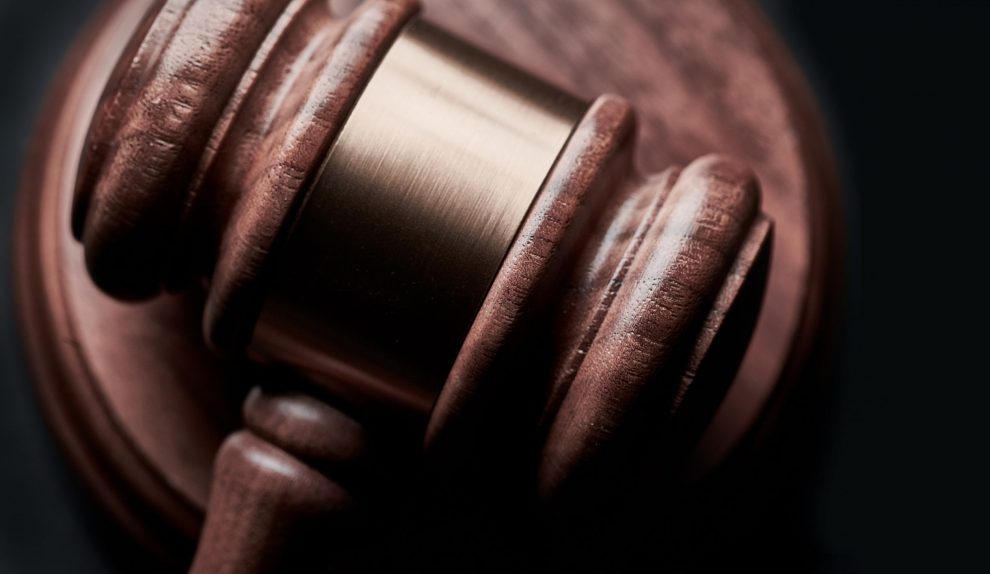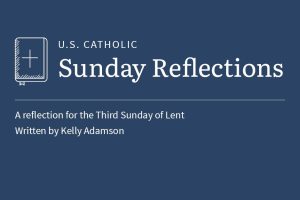We tend to want problems to stay solved once we solve them. In political life, this means that we generally think about law as a permanent solution to problems. We think, “If Congress would just do x, then it will be fixed,” or, “If the Supreme Court would only do y, then we’d never have this problem again.” We especially tend to hear things like this in election years. But experience proves that this is not the way things happen. In political life, nothing ever stands still.
The Obama Administration worked for two years to pass the Patient Protection and Affordable Care Act. Today, the individual mandate is gone and the law has been hollowed out. The law was not the last word. In a similar way, the U.S. Supreme Court decided Roe v. Wade in 1973, and legal analysts anticipate that the decision may be reversed this year. Of course, the Court has reversed its decisions before. Very little ever is final.
Still the temptation to think about the law in this way remains a fixture of Catholic engagement with political life. In recent days, we have seen the lure of “getting it right” re-framed under the name common good constitutionalism. Whatever we call it, I think this happens because we Catholics have not accepted the nature of law in a constitutional republic.
Ask the official teachings of the church what the civil law is, and you will get back a rather straightforward reply from the Catechism of the Catholic Church: “A human law has the character of law to the extent that it accords with right reason, and thus derives from the eternal law. Insofar as it falls short of right reason it is said to be an unjust law, and thus has not so much the nature of law as of a kind of violence.” Drawn directly from the 13th century Summa Theologiae of St. Thomas Aquinas, there you have it. The civil law is really a law when it corresponds to the moral law, revealed to us by God, proclaimed to us by the church, and available to us, presumably, by use of “right reason.” Anything else is “unjust” and, so, “a kind of violence.”
Suddenly, it becomes clear why Catholics have particular trouble imagining how laws can shift and change to tell “the story of a nation’s development through many centuries,” as Oliver Wendall Holmes described it. Perhaps this is one of the reasons why originalism has appealed for so long to so many Catholics. Originalism suggests that the law contains a truth we must preserve, a correct answer we should not disturb. That works well in theory. Practice rarely bears out such hopes. Change is too much a part of life and politics.
Jesuit theologian John Courtney Murray took up something like this question in an essay, “Should There Be a Law?” The essay was about the questions of censorship, but of course it was about something deeper. Murray’s real object is the distinction between law and morality which, he tells us, there has been a “failure to understand.” There are some problems that a law cannot solve. In fact, there are many. “Law seeks to establish and maintain only that minimum of actualized morality that is necessary for the healthy functioning of the social order,” Murray wrote.
It is a sort of tyrannical impulse to enshrine a moral claim that Catholics hold to be true into a law meant for Catholics and non-Catholics. Doing so ignores the distinction between morality and law, as it also misapprehends the situation in a constitutional republic like ours.
Under a system of government that permits everyone to believe as their conscience tells them to believe, broad moral agreement will be vanishingly rare. Even agreeing about the minimum morality sometimes is more than we can hope for. This is uncomfortable for Catholics who conceive of human laws as “direct[ing] persons, associations, and society generally toward [a] common good” that is fixed and was chosen for us rather than letting persons, associations, and society identify the common good themselves through a political process.
Our constitutional tradition sees law differently. Emerging from the Anglo-Saxon common law tradition, our Constitution directs that the people should chart their own course. It encourages us to think about law as “the story of a nation’s development,” or, in the words of the political historian J.G.A. Pocock, our Constitution’s common law roots see “a people and its laws uniquely and autonomously themselves.” The law emerges from us, and it is an expression of who we are as a people—Catholics and non-Catholics alike.
This does not mean we abandon morality. It means that we lower our expectations about what we can hope to achieve by way of law and politics for as long as we disagree about morality. St. Thomas Aquinas wrote that, “human laws do not forbid all vices, from which the virtuous abstain, but only the more grievous vices, from which it is possible for the majority to abstain.” Murray agreed that disagreements about even the moral minimum are a “critical” problem in a plural society that permits many differing belief systems where, still, law cannot be a law without the consent of the people, and a majority must consent.
For these reasons, the church must offer a greater theological reflection on what law in a constitutional republic means. Catholics must also grapple more realistically with how we can affirm human dignity and pursue the common good in a political culture where non-Catholic citizens make claims on the law and the state as valid as those made by Catholics. The polis belongs equally to us all.
Another election will bring the alluring promise again—“This time, we can restore the eternal truths and solve the problems forever.” Catholics are susceptible to this sort of thinking. We should be wary.
Image: by Bill Oxford on Unsplash















Add comment